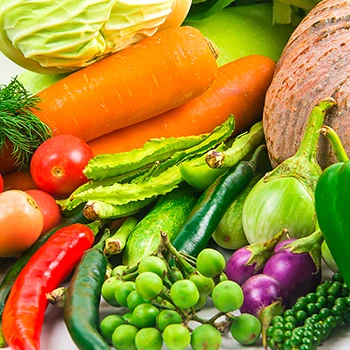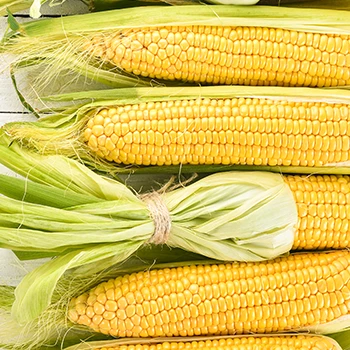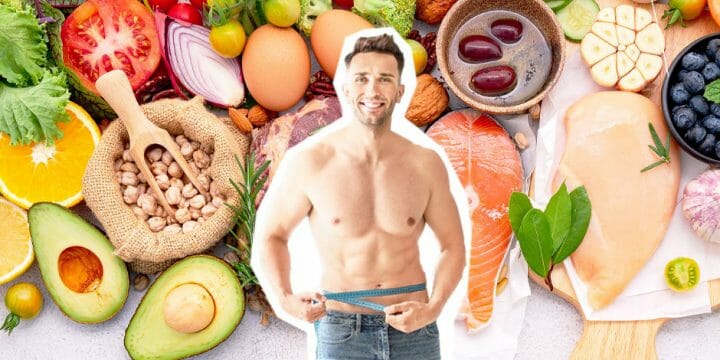As a dietitian, I often encounter a common theme in health and wellbeing articles: the recommendation to eat more vegetables for losing belly fat.
While it's true that vegetables are essential in a healthy weight loss diet, it's important to understand that consuming the wrong types or amounts can still lead to body fat gain.
In my practice, I emphasize the importance of balance and knowledge in dietary choices.
To provide a clear guide on the role of vegetables in fat burning, I have conducted extensive research. Here are the key findings that can help in effectively managing body fat through diet.
Quick Summary
- To effectively burn fat, it's crucial to choose the right vegetables and consume them in appropriate amounts.
- Leafy greens, cauliflower, carrots, and chilies are highlighted as the best vegetables for fat burning.
- Non-starchy vegetables are shown to enhance metabolism, crucial for reducing visceral and liver fat, according to the National Institute of Health (NIH).
- In my professional view, balancing raw and cooked vegetables in the diet maximizes their health benefits and aids in weight management.
Do Vegetables Have Weight Loss Benefits?

Yes, vegetables have benefits for weight loss as long as you focus on the right ones and the right amount.
I can confirm that selecting the right vegetables is a nuanced task. Even the healthiest choices can lead to belly fat accumulation if consumed in excess or prepared inappropriately.
In my practice, I've observed that non-starchy vegetables are effective in enhancing metabolism, which according to the National Institute of Health (NIH), is crucial for reducing visceral and liver fat [1].
However, it's important to be cautious. Vegetables such as corn, potatoes, beets, and squash, despite their nutritional value, may not be as effective in slimming the waistline, primarily due to their satiating nature.
A critical point to note, based on my observations: frying these types of vegetables can significantly exacerbate belly fat issues.
4 Types of Fat Burning Vegetables

I often provide my patients with a list of vegetables that are beneficial for weight loss and reducing belly fat.
Fortunately, there is a wide variety of options available. However, it's worth noting that for some of these vegetables, you may need to visit specialty Asian and whole food stores to find them.
1. Leafy Green Vegetables
Kale, lettuce, brussels sprouts, and spinach are great examples of leafy greens, and you can easily add two cups of these to any meal as a side salad.
According to WebMed, spinach is an especially great choice because it’s naturally high in fiber [2]. This promotes gut health and will also help you feel full for longer.
Related: Best Natural Sugar Blockers
2. Cauliflower And Broccoli
According to Mayo Clinic, just one cup of broccoli can provide you with five grams of fiber [3].
And it wouldn’t take too much effort to add two cups to your main meal, especially if you like to stir fry green veggies for dinner.
3. Chilies
You don’t have to buy the hottest chilies you can find.
Even the milder ones that have an almost sweet flavor contain capsaicin, which, according to NIH, has been proven to play a critical role in human metabolic rates [4].
4. Carrots
Carrots are great vegetables that burn fat and are rich in carotenoids. A study from the National Library of Medicine has shown that these can significantly impact visceral belly fat [5].
Aim to eat them raw as that should make the starches and carbs more difficult to break down and reduce a sudden impact on blood sugar levels.
“Carotenoids are one reason that doctors tell you to get a variety of colors in your diet. These nutrients provide rich pigments to fruits and vegetables and are necessary for a well-balanced diet.”
- Melinda Ratini, DO, MS, WebMD.com
Raw vs. Cooked Vegetables in Fat Burning
Raw and cooked veggies have unique nutritional benefits. Cooking boosts the absorption of nutrients like lycopene and beta-carotene but can reduce water-soluble vitamins, such as vitamin C.
Raw veggies offer digestion-helping enzymes and fiber, while cooking breaks down tough plant cells for easier nutrient absorption.
Incorporating both raw and cooked vegetables is beneficial for weight management, thanks to their essential nutrients and fiber that promote satiety.
My recommendation? Aim for a balanced consumption of both raw and cooked vegetables to ensure a diverse nutrient intake and to maximize the health benefits offered by various preparation methods.
Are There Vegetables You Should Avoid?

As a dietitian, I always advise patients looking to lose weight to be cautious with starchy vegetables.
Cooking these vegetables breaks down their complex carbohydrates, making them easier for the body to absorb. This process can significantly affect the body's ability to lose belly fat.
Therefore, it's important to limit the intake of cooked or refined starchy foods like potatoes, beets, corn, and rice. The more processed these foods are, the more they contribute to abdominal fat.
Instead, a healthy diet should emphasize raw or lightly steamed colorful vegetables and whole grains.
Pay Attention To Your Macros
Even healthy foods can end up giving you the wrong macro profile to help with burning fat.
Most vegetables will have a high percentage of carbs, but it’s important that you focus on the complex carbs. And you’ll find those in non-starchy veggies.
It’s also important to note that when it comes to vegetables, fat is not a bad thing.
If you can get more calories from veggies with a high percentage of healthy fats and complex carbs, then you’ll have a much better chance to lose belly fat in a more consistent way.
Related Articles:
FAQs
Should You Only Eat Vegetables to Burn Fat?
No, you shouldn’t only eat vegetables to burn fat. There are many other nutrient-dense sources of macro and micronutrients that will contribute to weight loss. And unless you’re vegan, these will also include animal products.
Why Do People Gain Weight Eating Vegetables?
People gain weight eating vegetables because they either eat too much or they consume highly processed vegetables instead of raw green vegetables. The first step should be to eat fewer calories, especially from starchy veg.
References:
- https://www.ncbi.nlm.nih.gov/pmc/articles/PMC4177517/
- https://www.webmd.com/diet/health-benefits-spinach
- https://www.mayoclinic.org/healthy-lifestyle/nutrition-and-healthy-eating/in-depth/high-fiber-foods/art-20050948
- https://www.ncbi.nlm.nih.gov/pmc/articles/PMC5426284/
- https://pubmed.ncbi.nlm.nih.gov/32764462/
About The Author
You May Also Like






